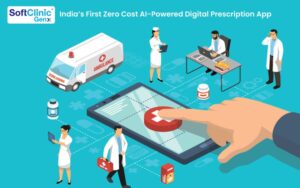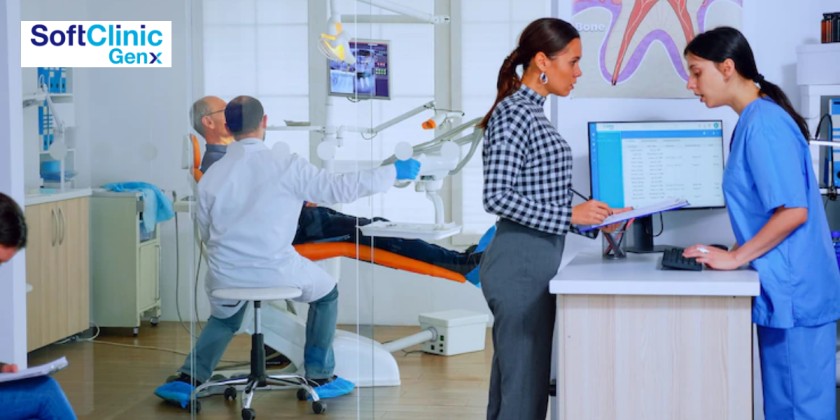The Impact of Hospital Software on Patient Satisfaction and Healthcare Outcomes
December 5, 2024Table of Contents
In today’s fast-paced healthcare landscape, patient satisfaction and positive outcomes are critical to the success of any hospital or clinic. The adoption of hospital software solutions plays a pivotal role in improving operational efficiency, patient engagement, and clinical outcomes. This article explores how digital systems enhance patient experiences and healthcare results.
Streamlining Administrative Processes
One of the significant challenges in healthcare is managing the administrative workload efficiently. Hospital software solutions simplify these tasks by:
- Automating appointment scheduling and reminders.
- Digitizing billing processes for faster and more accurate transactions.
- Centralizing patient records for quick access.
These capabilities reduce patient wait times and administrative errors, leading to higher satisfaction levels. By eliminating manual processes and optimizing workflows, hospitals can focus more on patient care rather than paperwork.
Case Study: Efficient Administrative Overhaul
Joint & Bone Care Hospital implemented SoftClinic GenX, resulting in a 30% reduction in patient wait times and a 20% increase in billing accuracy. The hospital also reported a significant drop in appointment no-shows due to automated reminders. Additionally, centralized patient records provided seamless access to information, enhancing both patient care and administrative efficiency.
Learn more about the transformation at Joint & Bone Care Hospital’s case study.
Enhancing Patient-Provider Communication
Effective communication is a cornerstone of excellent healthcare services. Hospital software fosters better interaction by:
- Offering patient portals for direct communication with healthcare providers.
- Providing real-time updates on test results, prescriptions, and follow-up appointments.
- Enabling secure messaging to address patient queries promptly.
Such features empower patients and foster trust in the healthcare system. Enhanced communication also improves patient adherence to treatment plans, reducing readmissions and boosting overall outcomes.
Real-Time Patient Engagement
When patients are actively engaged in their care, they are more likely to comply with treatment plans. For example, patient portals allow individuals to access their medical history, ask questions, and receive updates, making healthcare more transparent and participatory.
Learn more about how patient portals improve healthcare communication.
Improving Patient Safety
Digital systems significantly reduce the risk of medical errors, ensuring safer care for patients. Key contributions include:
- Accurate and up-to-date patient records are accessible to all authorized staff.
- Medication management tools that prevent dosage errors.
- Alerts and reminders for follow-ups, vaccinations, or health screenings.
These features ensure that patients receive the right care at the right time, improving their health outcomes. Studies have shown that hospitals using advanced electronic medical records (EMRs) experience a 50% reduction in medication errors.
Impact of Medication Management
Proper medication management systems integrated into hospital software notify healthcare providers about potential drug interactions, ensuring patient safety and minimizing adverse events.
Read more on patient safety and digital solutions.
Boosting Clinical Decision-Making
Hospital software enhances clinical decisions by providing:
- Comprehensive patient histories, including past diagnoses, treatments, and test results.
- Integration with diagnostic tools for immediate access to lab and imaging reports.
- Predictive analytics to identify at-risk patients and recommend preventive measures.
These tools enable healthcare providers to make informed decisions, ultimately improving patient care. Clinicians can base their judgments on real-time data, ensuring precise and personalized treatments.
Predictive Analytics in Action
Predictive analytics can alert clinicians to potential complications, enabling early intervention. For instance, predictive tools can identify patients at risk of sepsis, significantly improving survival rates.
Explore how predictive analytics are transforming healthcare.
Personalized Patient Experiences
Patients appreciate care tailored to their unique needs. Hospital software supports personalization by:
- Storing individual preferences and medical histories for customized treatment plans.
- Offering mobile apps and portals where patients can manage their health records and appointments.
- Delivering targeted health tips and reminders based on a patient’s condition.
Personalized care contributes to higher patient satisfaction and loyalty. When patients feel valued and understood, their trust in the healthcare system grows.
Reducing Operational Costs
Efficient hospital software solutions optimize resource allocation, saving time and money. These cost savings often translate into better services for patients, such as:
- Lower healthcare costs due to reduced inefficiencies.
- Enhanced staffing models that improve patient-to-staff ratios.
- Faster insurance processing, ensuring timely treatment without financial stress.
Operational savings allow hospitals to invest in advanced technology and improved patient care services.
Transforming Healthcare Outcomes
Digital hospital systems directly impact patient outcomes through:
- Faster diagnosis and treatment due to integrated systems.
- Proactive health management tools that encourage preventive care.
- Enhanced data analysis for population health studies and research.
These advancements create a healthcare environment focused on continuous improvement and better results.
Internal Collaboration and Integration
Hospital software ensures seamless collaboration among departments, improving the overall patient journey. For instance:
- Integration between labs, pharmacies, and clinics ensures timely access to test results and prescriptions.
- Coordinated care plans minimize gaps in treatment and enhance recovery rates.
Internal collaboration reduces redundant tests, shortens hospital stays, and enhances patient experiences.
Explore how SoftClinic GenX integrates multiple healthcare functions.
Conclusion
The adoption of hospital software is not just a technological upgrade—it is a transformational change that enhances patient satisfaction and healthcare outcomes. By streamlining processes, improving communication, and personalizing care, digital systems empower both patients and providers.
Ready to take your healthcare facility to the next level? Contact SoftClinic GenX today to learn more about our hospital software solutions.
Internal Links for Better Context
- SoftClinic GenX Hospital Management Software
- Features of SoftClinic GenX Patient Portals
- Success Stories: How Hospital Software Transformed Facilities

